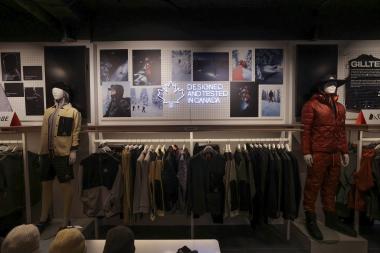ORAGE eröffnet Flagship Store in Europa
ORAGE, ein Unternehmen für Ski- und Outdoor-Bekleidung aus Kanada, eröffnet seinen ersten europäischen Flagship-Store in Chamonix, Frankreich. Der neue Shop im Herzen des Freeride-Spots (Avenue Ravanel Le Rouge 75) bietet Ski- und Outdoor-Begeisterten ein sportliches und typisch kanadisches Einkaufserlebnis am Fuße des Mont Blancs.
Ob Profi oder Anfänger – im Shop präsentiert ORAGE die gesamte Snow Apparel Kollektion sowie Accessoires für Männer, Frauen und Jugendliche.
"Wir freuen uns sehr, unsere ersten Schritte in Europa zu gehen", kommentiert Eric D'Anjou, CEO und Gründer der in Montreal ansässigen Marke. "Die Eröffnung des ersten europäischen Flagship-Stores war eine lange, spannende Reise und essenziell für unser Engagement auf dem europäischen Markt. Endlich können wir unsere tiefe Leidenschaft für die Berge und das Freeriden auch mit unserer Community in Europa teilen."
ORAGE Skibekleidung Sportbekleidung Outdoor- und Sportbekleidung Stationärer Einzelhandel
ORAGE














